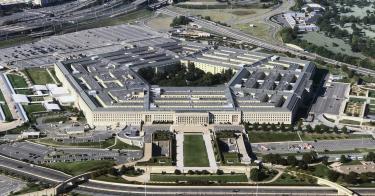Defense Secretary James Mattis has made reforming how the Pentagon does business a top priority. His goal: To improve performance and affordability.
And Mr. Mattis does not have to go it alone. Deputy Secretary Patrick Shanahan also is concentrating on improving how the department operates. And House Armed Services Committee Chairman Mac Thornberry, Texas Republican, has proposed substantial changes to the Pentagon’s support agencies in an effort to focus the defense budget further toward lethality.
The Pentagon’s mission is to deter war and prevail in combat. It operates in an environment where every advantage counts and effectiveness is essential. Improving the department’s back-office operations is not just good business practice, it will produce cascading effects throughout all of the department’s operations — up to and including war-fighting.
The Heritage Foundation has identified many ways to wring greater efficiencies from Pentagon business operations. The three areas offering the greatest potential for savings and efficiencies are base infrastructure, competition for goods and services, and decreasing the number of military personnel performing commercial activities.
The Pentagon has determined that it currently carries 19 percent more infrastructure than it needs. But closing bases is not easy; politicians are notoriously loath to lose defense installations within their districts.
To help take the politics out of basing decisions, Congress created the Base Realignment and Closures (BRAC) process. While far from perfect, BRAC is still the best tool available to help the Pentagon rationalize its real estate holdings.
And rational decision-making is sorely needed. Every building, office space or field — occupied or not — incurs significant maintenance and overhead costs. A new round of BRAC would generate an estimated $2 billion in savings through reductions in excess infrastructure.
Competition is also a proven money-saver. Yet for close to a decade, Congress has inserted language in the defense budget that bars the private sector from bidding to provide services currently supplied by federal employees.
Lawmakers should lift the moratorium and allow the Pentagon to recommence competitive bidding on a wide array of services of commercial nature, such as education and real property management. These competitions should be conducted under guidelines established by Office of Management and Budget Circular A-76.
An essential part of the A-76 competitive process is determining how much it costs the government to execute a task, which necessarily leads to an evaluation of how the work actually gets done. Because of the need to explain and rationalize the task before competing, A-76 has generated savings no matter whether a government agency or a private company wins the competition.
Another associated reform concerns the number of military personnel executing commercial functions. The Congressional Budget Office estimates that more than 300,000 active-duty military personnel currently perform commercial support functions such as accounting services or logistics support. By definition, these functions can be performed by either contractors or government employees. Active-duty personnel have received unique and expensive training that commercial functions do not use.
The Pentagon needs to evaluate how many active-duty personnel are engaged in commercial functions and develop a plan to reduce that number. Even if just a portion of these positions were to be transferred to civilians, it would generate substantial savings and also increase the availability of active-duty personnel for their primary war fighting functions.
These three reforms would make the Pentagon a more effective steward of taxpayers’ dollars, while enabling it to increase support for our warfighters. More efficient business management practices will make our military more successful in its primary mission of deterring and defeating our nation’s enemies.
It is now up to Congress to make this happen.
This piece originally appeared in The Washington Times



